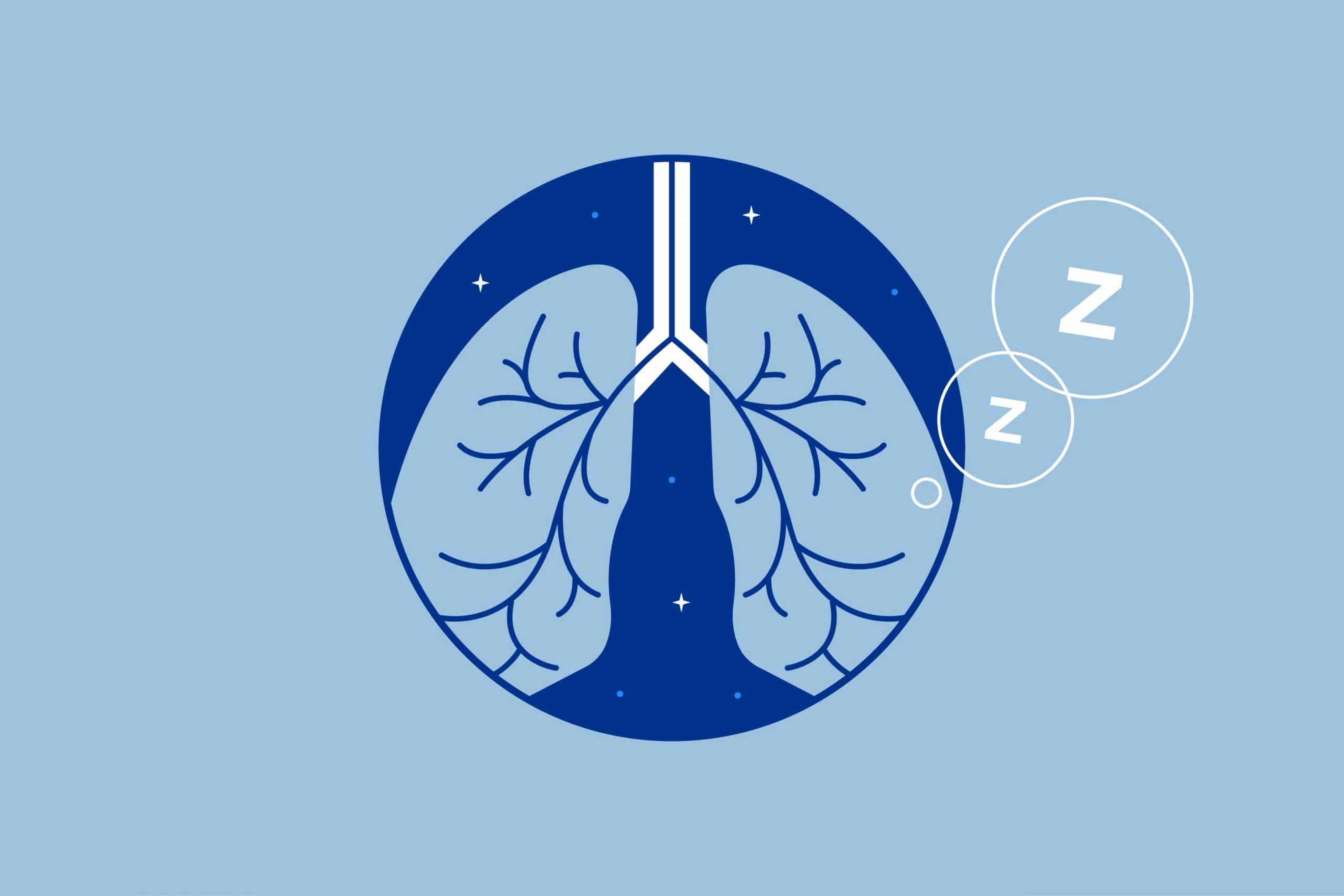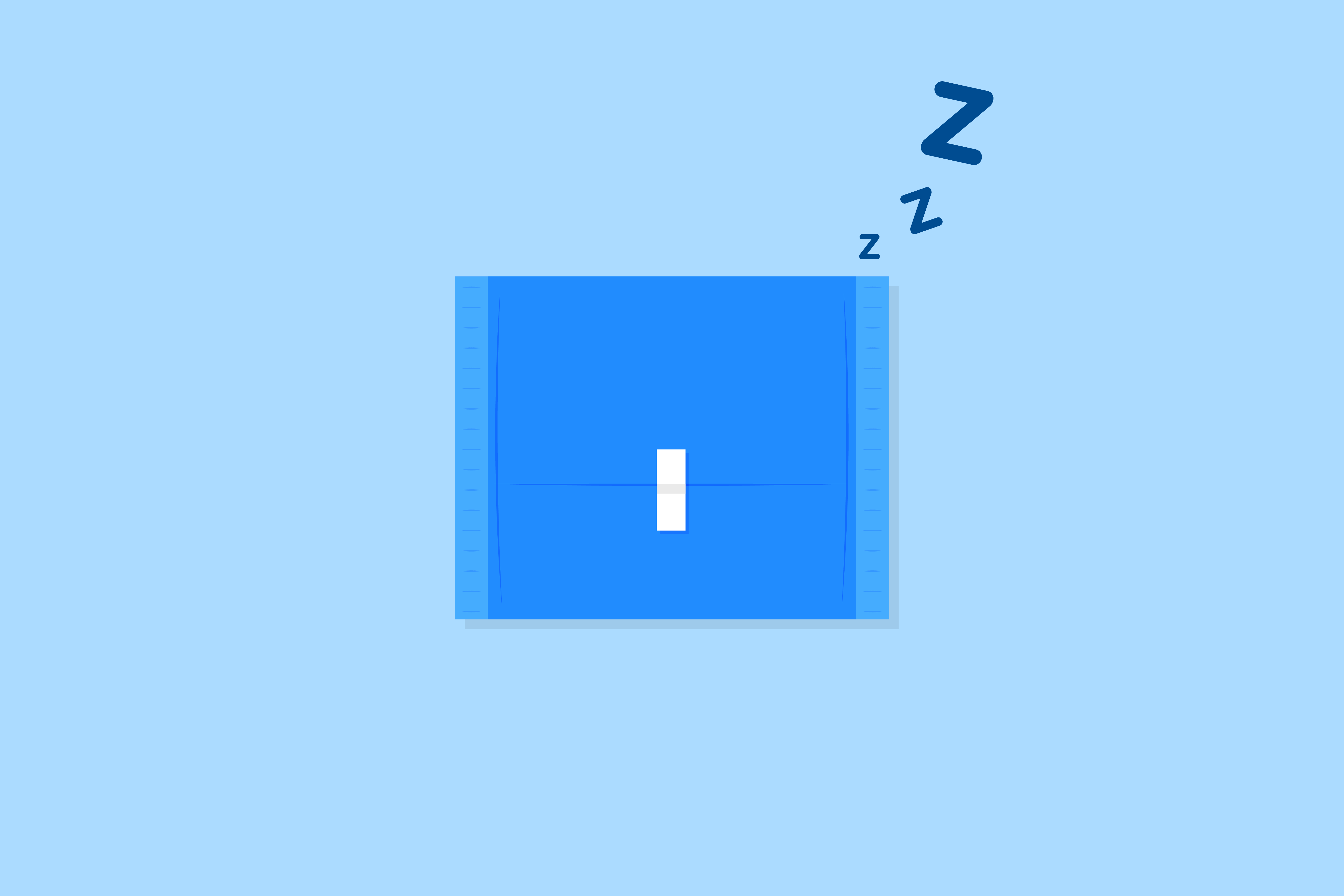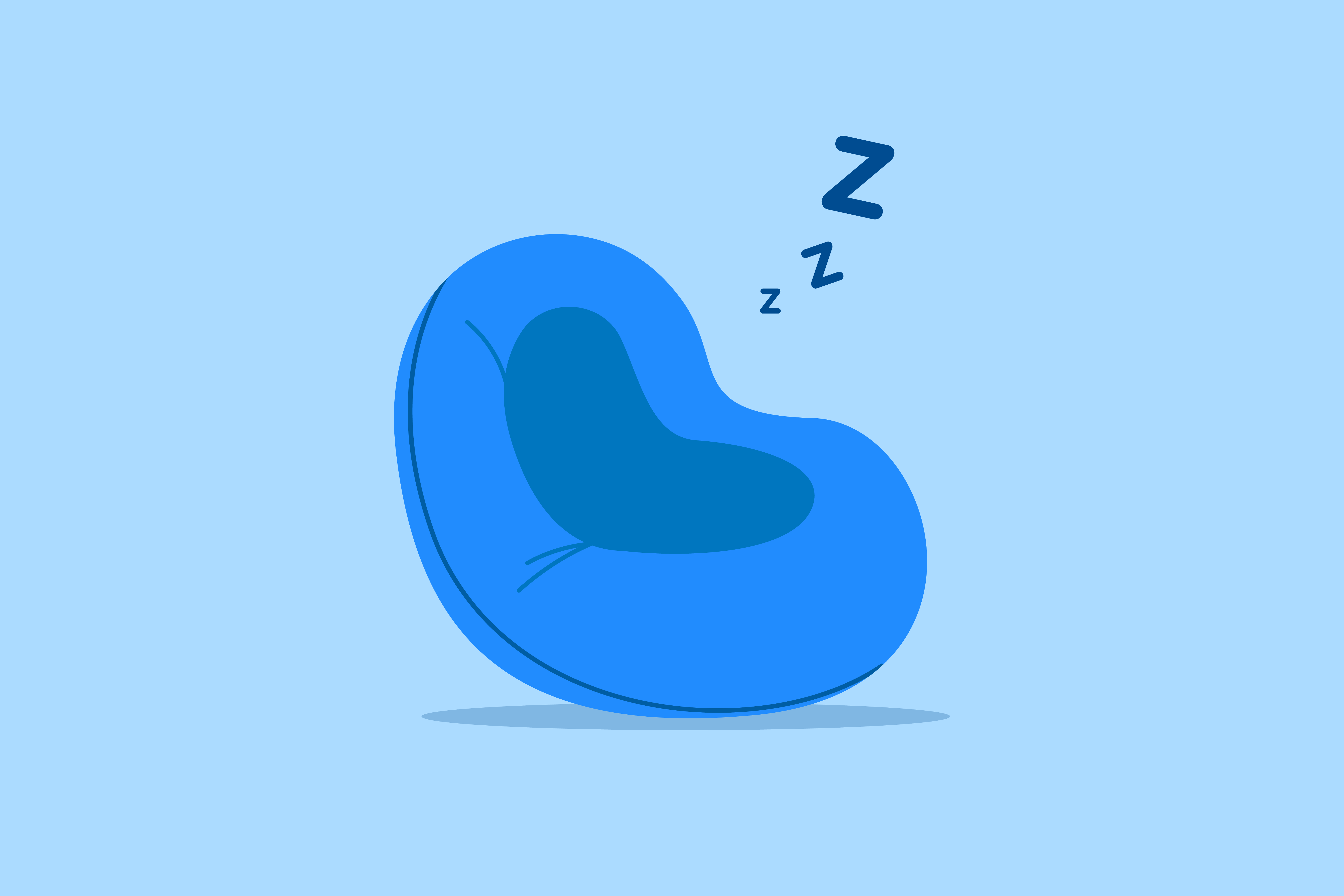Key Takeaways
- Various Causes of Breathlessness: Shortness of breath when lying down can be caused by a range of medical conditions, including sleep apnea, heart failure, obesity, panic disorder, chronic obstructive pulmonary disease (COPD), pregnancy, and respiratory infections. Identifying the underlying cause is essential for proper treatment.
- Importance of Medical Evaluation: If you experience regular or severe shortness of breath when lying down, it’s crucial to consult a healthcare professional. They can conduct a thorough evaluation, including physical exams and diagnostic tests, to determine the cause and recommend appropriate treatment options.
- Treatment and Lifestyle Changes: Treatment may involve lifestyle changes, such as weight management, using breathing devices like continuous positive airway pressure (CPAP) for sleep apnea, medications, or surgical interventions. Following your healthcare provider’s advice and making necessary lifestyle adjustments can help alleviate symptoms and improve your overall well-being.
Orthopnea is the medical term for the sensation of breathlessness when lying down. Other times, a person might experience paroxysmal nocturnal dyspnea—or waking up suddenly feeling short of breath.
While the symptoms may vary, people with shortness of breath can feel as though they’re being smothered, are unable to take in enough air, have chest tightness, and are uncomfortable when breathing.
Orthopnea and paroxysmal nocturnal dyspnea may prevent you from sleeping properly, impairing your overall health. Our article looks into what may be causing your shortness of breath when lying down. Even if it isn’t a medical emergency, if you’re having shortness of breath regularly, it’s a good idea to speak with your doctor.
1. Sleep Apnea
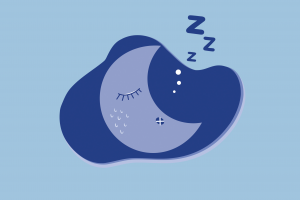 Sleep apnea is one of the most common reasons people have a shortness of breath while lying down. Often confused with mere snoring, obstructive sleep apnea (OSA) causes shallow breaths or pauses in breathing while asleep. The muscles in your throat relax and obstruct your airways, especially when lying on your back.
Sleep apnea is one of the most common reasons people have a shortness of breath while lying down. Often confused with mere snoring, obstructive sleep apnea (OSA) causes shallow breaths or pauses in breathing while asleep. The muscles in your throat relax and obstruct your airways, especially when lying on your back.
Sleep expert Dr. Nayantara Santhi says, “One of the most common symptoms of OSA is excessive daytime sleepiness. Why does this happen? OSA involves a decrease or complete halt in airflow, resulting in abrupt drop in blood oxygen saturation. The brain responds to this by causing a brief arousal from sleep that restores normal breathing. Because this can occur hundreds of times in a night, sleep gets fragmented and leads to excessive sleepiness during the day.”
People with sleep apnea might experience snoring, difficulty staying asleep, waking up with a dry mouth or sore throat, and daytime fatigue. If you experience any of these additional symptoms, we suggest speaking with a doctor about undergoing a sleep study to rule out or diagnose sleep apnea and any other sleep disorders.
Simple nasal decongestants may be enough to resolve sleep apnea, though some people’s symptoms might respond better to breathing devices such as a mouthpiece or a continuous positive airway pressure (CPAP) machine.
2. Heart Failure
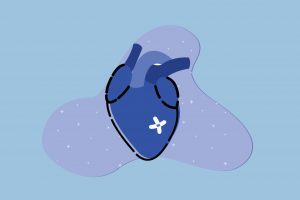 Congestive heart failure often causes difficulty breathing when lying down. With this condition, the heart is unable to pump blood efficiently and relax like normal. Heart failure is generally caused by other health conditions and diseases—including high blood pressure, heart attack, or heart defects.
Congestive heart failure often causes difficulty breathing when lying down. With this condition, the heart is unable to pump blood efficiently and relax like normal. Heart failure is generally caused by other health conditions and diseases—including high blood pressure, heart attack, or heart defects.
Heart failure is unpredictable and worsens with time, and can be impacted by factors such as how sleep deprivation affects the heart. The disease causes shortness of breath, fatigue, fluid build-up in feet, legs, and abdomen, coughing, and loss of appetite.
Heart failure is a very serious condition and can become fatal, however living with the condition is possible. There are effective medications and surgeries used to prolong your lifespan or resolve any underlying causes.
3. Obesity
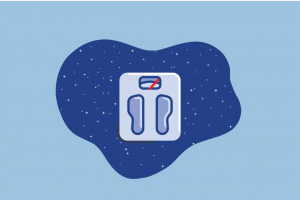 If you carry excess weight, you might have difficulty breathing normally. When lying down, your abdomen and chest might be compressed and are unable to expand fully. While obesity can be caused by lifestyle choices, certain diseases, medications, and socioeconomic and class issues are linked to obesity as well.
If you carry excess weight, you might have difficulty breathing normally. When lying down, your abdomen and chest might be compressed and are unable to expand fully. While obesity can be caused by lifestyle choices, certain diseases, medications, and socioeconomic and class issues are linked to obesity as well.
Obesity is commonly linked to other health conditions, such as hypertension, high blood pressure, diabetes, and certain cancers. Losing weight by following a healthy diet and exercise regime can relieve symptoms, but always speak with your doctor to discuss a weight loss plan.
4. Panic Disorder
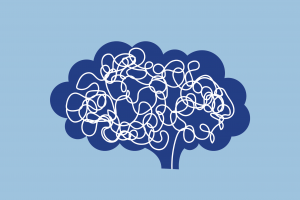 Panic disorder is a type of anxiety where a person experiences anxiety or panic attacks, feeling a loss of control, extreme fear, and detachment. Panic attacks are sudden and can last several minutes, causing a person to feel short of breath or as though they are unable to breathe normally.
Panic disorder is a type of anxiety where a person experiences anxiety or panic attacks, feeling a loss of control, extreme fear, and detachment. Panic attacks are sudden and can last several minutes, causing a person to feel short of breath or as though they are unable to breathe normally.
Along with the psychological symptoms of an anxiety attack, a person may experience sweating, trembling, choking, lightheadedness, tingling. If you have a panic disorder, seek counseling, cognitive behavioral therapy, or psychotherapy.
5. Chronic Obstructive Pulmonary Disease (COPD)
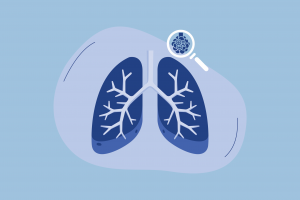 Chronic obstructive pulmonary disease (COPD) is a group of lung diseases, such as emphysema or chronic bronchitis, and is commonly caused by poor air quality. In a patient with COPD, the lungs’ air sacs are damaged and the breathing tubes are narrowed, making it difficult to breathe properly.
Chronic obstructive pulmonary disease (COPD) is a group of lung diseases, such as emphysema or chronic bronchitis, and is commonly caused by poor air quality. In a patient with COPD, the lungs’ air sacs are damaged and the breathing tubes are narrowed, making it difficult to breathe properly.
Without treatment, COPD worsens over time. Treatment won’t reverse lung damage, but inhalers, surgery, and rehabilitation can improve symptoms.
Symptoms of COPD include chronic coughing or wheezing, shortness of breath when completing regular activities, frequent respiratory infections, and fatigue.
6. Pregnancy
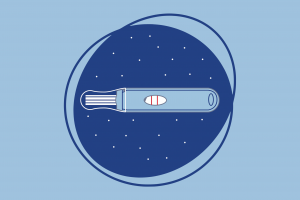 When pregnant, the growing uterus presses down against the organs, particularly the diaphragm and lungs, decreasing lung capacity. Also, the body releases a hormone called progesterone, triggering the brain to take faster breaths. As pregnancy continues, the body needs to pump more blood to accommodate the growing fetus.
When pregnant, the growing uterus presses down against the organs, particularly the diaphragm and lungs, decreasing lung capacity. Also, the body releases a hormone called progesterone, triggering the brain to take faster breaths. As pregnancy continues, the body needs to pump more blood to accommodate the growing fetus.
Feeling breathless while pregnant is completely normal and typically passes after birth. Along with shortness of breath, pregnant women may have chest pain, heart palpitations, and fatigue.
7. Respiratory Infections
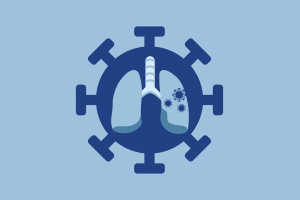 Respiratory infections, such as the common cold, mild flu, or sinus infections, are a common cause for shortness of breath. They only last between 3 to 14 days, so difficulty breathing should pass with the sickness itself.
Respiratory infections, such as the common cold, mild flu, or sinus infections, are a common cause for shortness of breath. They only last between 3 to 14 days, so difficulty breathing should pass with the sickness itself.
There are two types of respiratory infections: an upper infection and a lower infection. An upper respiratory infection starts at the sinuses and ends at the vocal cords, while the lower infection starts at the vocal cords and ends at the lungs.
While the symptoms vary based on if you have an upper or lower respiratory infection, you might suffer from a sore throat, runny nose, headaches, sneezing, and achiness.
See also Flu Season & Sleep
Talking with Your Doctor about Shortness of Breath
It’s good to reach out to your doctor as soon as you experience unexpected breathing problems. If you find you are experiencing other symptoms such as chest pain, lips turning blue, or swelling of your ankles and feet, you should go to a hospital immediately. These can all point to a greater medical issue.
To diagnose the issue, your doctor will likely perform a physical exam and ask about your medical history, along with other questions about the nature of your breathing difficulties.
Some questions you may be asked include:
- What seems to make your breathing worse or better?
- Are there other times you have difficulty breathing?
- How many pillows do you use to breathe comfortably? Alternatively, do you use a wedge pillow for better breathing?
- Is there swelling in your ankles or feet?
If the physical examination does not clear up what the issue is, your doctor may order more tests such as blood tests, a chest X-ray or CT scan, lung function tests or an echocardiogram. You may even be referred to a specialist working in respiratory medicine, such as an allergy and asthma clinic.
(See also Does Lack of Sleep Affect My Blood Test Results?)
Be Careful of Fiberglass in the Bedroom
If you notice you’re wheezing, coughing and struggling to breathe when you didn’t before, you may want to check if there’s a hole in your mattress cover or if you see small sparkling shards on and around the bed. If you notice these things, it’s possible that fiberglass inside your mattress has escaped and is causing breathing irritation.
The point of fiberglass inside a mattress is to serve as a flame barrier. However, if the fiberglass escapes and is inhaled, it can cause breathing difficulty and other symptoms such as stomach irritation. These potential issues are why many shoppers are switching to mattresses without fiberglass.
If you don’t know if your mattress has fiberglass, take a look at the listed ingredients on its laundry tag, or try a quick web search to see if the model has any customer complaints about fiberglass. Even if your mattress is in good condition, fiberglass escaping and being ingested can worsen pre-existing breathing difficulties. If it has fiberglass, it might be time to replace your mattress.
FAQs
Can dehydration cause trouble breathing?
Yes, without proper fluids, the body is unable to provide cells with enough energy. Water moistens the body’s bronchial tubes, lungs, and nasal passages. It also thins mucus and prevents coughing episodes. Drink at least 3.7 liters (125 ounces) of water if you’re a male and 2.7 liters (91 ounces) of water if you’re a female every day to stay properly hydrated.
When should I be concerned about my shortness of breath?
Signs of a medical emergency include:
- Severe shortness of breath (an inability to talk)
- Allergic reaction
- Chest pain, shooting arm pain, profuse sweating (heart attack)
- Weak pulse
- Dizziness
- Fever
- Rapid breathing or heart rate
- A blue tinge to your lips
If you are experiencing any of these symptoms, seek immediate medical attention.
How should I sleep to avoid shortness of breath?
Consider sleeping at an incline—with a wedge pillow or adjustable bed frame—to improve circulation and avoid breathlessness that comes with lying flat. You might also add a pillow under your knees to help your body relax and provide extra support to your back and spine.
Another position to try is laying on your side with a pillow between your knees. This way, your tongue won’t rest in the back of your throat and block your airways.
You might also try wearing nasal strips and using a saline spray or nasal irrigation system to clear your sinuses before bed. For individuals with sleep apnea, using a continuous positive airway pressure (CPAP) machine can relieve symptoms.
Does lack of oxygen make you sleepy?
Yes, a lack of oxygen causes lethargy because without oxygen, your body is unable to function normally. A low blood oxygen level is anything below 60 millimeters of mercury (mm Hg), while a normal blood oxygen level is between 75 and 100.
However, if your body experiences low oxygen levels while you’re asleep, the brain tends to wake you up for better breathing. This is why sleep apnea, where a sleeper’s breathing can stop during rest due to throat blockage, can leave a person feeling excessively tired during the day.
How do I relieve my shortness of breath?
If your shortness of breath is not severe, you can practice controlled breathing techniques such as pursed-lip and diaphragmatic breathing to improve your symptoms. You can also leave a fan on in your room as it may relieve the breathless feeling, though there are pros and cons to sleeping with a fan on.
When suffering from obstructive sleep apnea, your doctor might recommend using a CPAP or BiPAP (Bilevel Positive Airway Pressure) machine to relieve shortness of breath while sleeping. Lifestyle changes can also help you breathe easier, such as avoiding any allergens or irritants and staying away from foods that might trigger acid reflux.
Conclusion
Orthopnea is highly uncomfortable, can ruin sleep, and is unsafe in certain situations. Even if your shortness of breath isn’t life-threatening, always contact your doctor if you have an unexplained difficulty breathing when lying down. The causes and severity differ from case-to-case, so it’s important to receive proper diagnosis and treatment options.
About the author
Sanchita Sen is a full-time writer focusing on the sleep health and mattress industry. She is a former journalist who has written numerous articles on the healthcare sector. Some of the topics she has covered include how to lucid dream, fever dreams, melatonin for sleep, and best gel memory foam mattress. Sanchita holds a Master of Arts in Communications from Convergence Institute of Mass Media and Information Technology Studies. She is also a published author, who seeks inspiration from both real life and the world of fiction.
View all posts